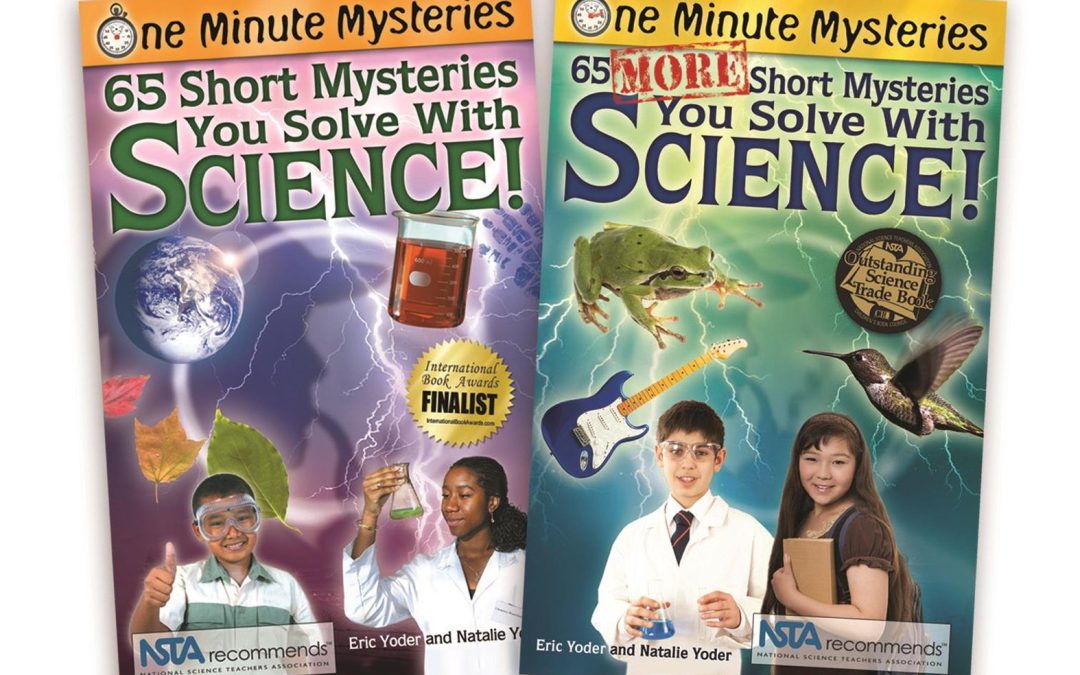For that moment when you want to put something in the hands of your 10-year old that won’t cost a fortune, won’t send them down rabbit trails of drama, and will keep their attention for quick spurts, something like this book is a great choice. 65 Short Mysteries You Solve with Science (published by Science, Naturally! in Washington, DC) is a nice book to keep around. This is good for quick car rides, brain breaks, fun weekend reading, or other moments when you don’t want to dive deep into the world of long stories.
The father-daughter author team designed these short mysteries or problems needing solutions in a way that allows the reader to quickly assess the problem in the short situation on one side of the page, then has her pause before turning the page for the answer. Some of the “mysteries” are actual mysteries such as “who wrote the phrase on the balloon”, whereas other “mysteries” are “how do I solve this problem given the variables I need to work within”. The book is divided into different types of sciences such as Life Sciences, Physical and Chemical Sciences, and General Sciences. You could easily add a mystery to your school time discussion because it’s so easy to find essays that can relate to your lesson. A small, two-page glossary is included in the rear of the book. When the resolution to the mystery is given, it also includes scientific reasoning as to why that is the answer. Additionally, any term that could be confusing, such as “centrifugal force” is defined in a way that doesn’t seem like a textbook definition.
The Yoder duo won the Purple Dragon Book Award and the Brain Child Award Winner from Tillywig Toy Awards, as well as a recommendation from the National Science Teacher Association. If you find that this kind of fun book is enjoyable to your kids, you can also buy the 65 MORE Short Mysteries You Solve With Science, as well as 65 Short Mysteries You Solve with Math by the same authors.
My daughter keeps this book, as well as the second one (65 MORE Mysteries) on her bedside table and will read a few of these scenarios before bed when she is between her longer novels. I am always happy to find good resources to keep putting into the hands of my kids, and even more so when the resources further scientific thought and discovery.
Do you struggle to find good reads that spur on more scientific or mathematical thinking? What great books do you keep around the house for your older kids?
Lindsay Banton is a caffeinated mother to three great kids. She never expected to homeschool, but has found that it is a wonderful addition to their lifestyle and wouldn’t change it for the world. In addition to homeschooling, Lindsay works alongside her husband in campus ministry at a large university in Connecticut. She grew up in Virginia but has settled into life in New England, learning to love the long winters, cool springs, green summers and gorgeous autumns- and has built a boot collection to meet all the demands. She is currently blogging at www.lindsaybanton.com.

